
Front_Office_Operations
.pdf
Chapter 9 – Interpersonal and selling skills
Selling skills and techniques
4.5 Increasing occupancy
●Juggling bookings to maximise occupancy. Skilled reservation staff can 'fit bookings into the available space on the conventional chart - as can computer reservations programmes – by allocating or re-allocating rooms in such a way as to open up space for additional reservations. (e.g.. guests booked into single accommodation may be persuaded to 'double up' or share a twin room (e.g.. within tour groups or conference bookings), in order to free up additional singles
●Offering alternatives when taking enquiries. A reservation clerk need not turn away business because the requested room type or date is unavailable. (S)he may well be able to offer a different type of room (perhaps a twin or two singles instead of a double, at a discounted rate if necessary); different dates (if the guest is flexible); or a referral to a sister hotel (still good marketing, because of the goodwill created by the assistance).
●Minimising 'no shows' by 'chasing' unconfirmed bookings, reconfirming the day before, charging non-refundable deposits on reservation, or accepting credit card bookings. Minimising the impact of no shows by planned overbooking, waiting lists, advertised release times etc.
●Converting enquiries into sales, using the various selling techniques discussed above.
www.cthresources.com |
Page 521 |
|
www.cthawards.com |
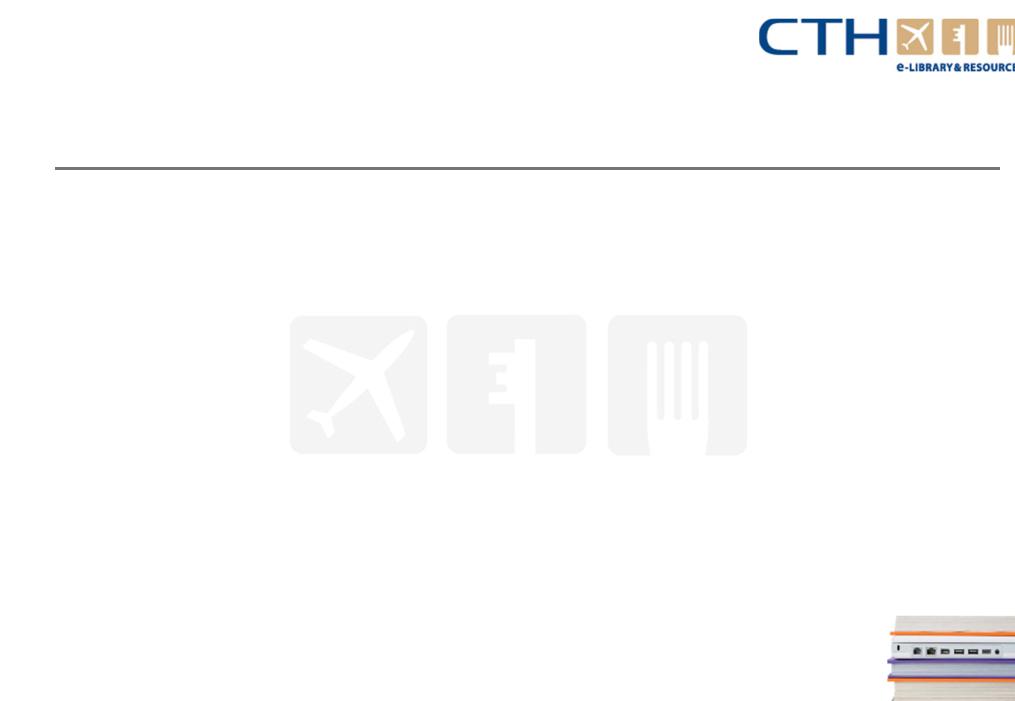
Chapter 9 – Interpersonal and selling skills
Selling skills and techniques
4.6 Increasing average room rates and guest spend
Up-selling
Up-selling (or 'bettered sales') means persuading guests to upgrade their reservation or purchase, and therefore to spend more - an important way of increasing average rates and yield.
The ideal time for up-selling is reservation and/or check-in (maximising the added revenue - and avoiding mid-stay changes).
A guest intending to book a standard room may be informed that the hotel also has a 'superior' room available for that period, offering a better view, or more amenities - or whatever the justification of the higher classification and room rate is, whichever is likely to appeal most to the prospective guest. A guest may be willing to upgrade and pay the extra amount for a variety of reasons. If a guest is planning a long stay, (s)he may upgrade for the promise of more wardrobe space; a family may upgrade for more room; a well-off guest, or a guest whose expenses are being paid by a company, may be inclined to upgrade for more status and amenities.
www.cthresources.com |
Page 522 |
|
www.cthawards.com |
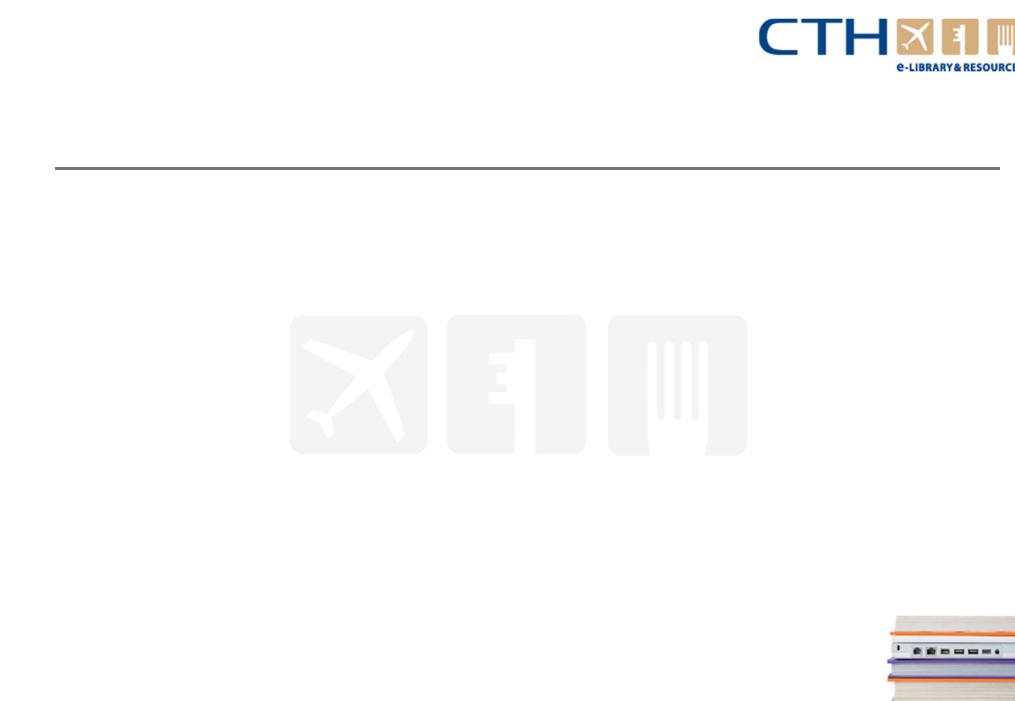
Chapter 9 – Interpersonal and selling skills
Selling skills and techniques
4.6 Increasing average room rates and guest spend continued…
Cross-selling
Is selling related or additional products to the ones the guest has initially purchased. Guests will have already purchased a room and breakfast, but perhaps no 'extras'. Cross-selling persuades them to add the 'extras' that they might not previously have thought of or intended to buy, but which - since they are already in the hotel - they are willing to consider.
It involves informing guests about the availability of added-value facilities and services of the hotel: the bar and restaurant facilities; spa, gym and sports facilities; laundry and dry cleaning; executive lounge and business facilities; special entertainments (e.g. a guest cocktail party or dinner show); in-house hairdressing or shopping facilities; tour and entertainment booking service etc.
This kind of sales opportunity may occur at any time during the guest's stay. Cross-selling in a hotel setting is about providing Information and options to guests - not being pushy! The information should be targeted to the guest's enquiries or anticipated needs. In order to be effective. (e.g. A guest arriving too late for lunch or dinner service may be informed that snacks are available all day from the
Bar).
www.cthresources.com |
Page 523 |
|
www.cthawards.com |
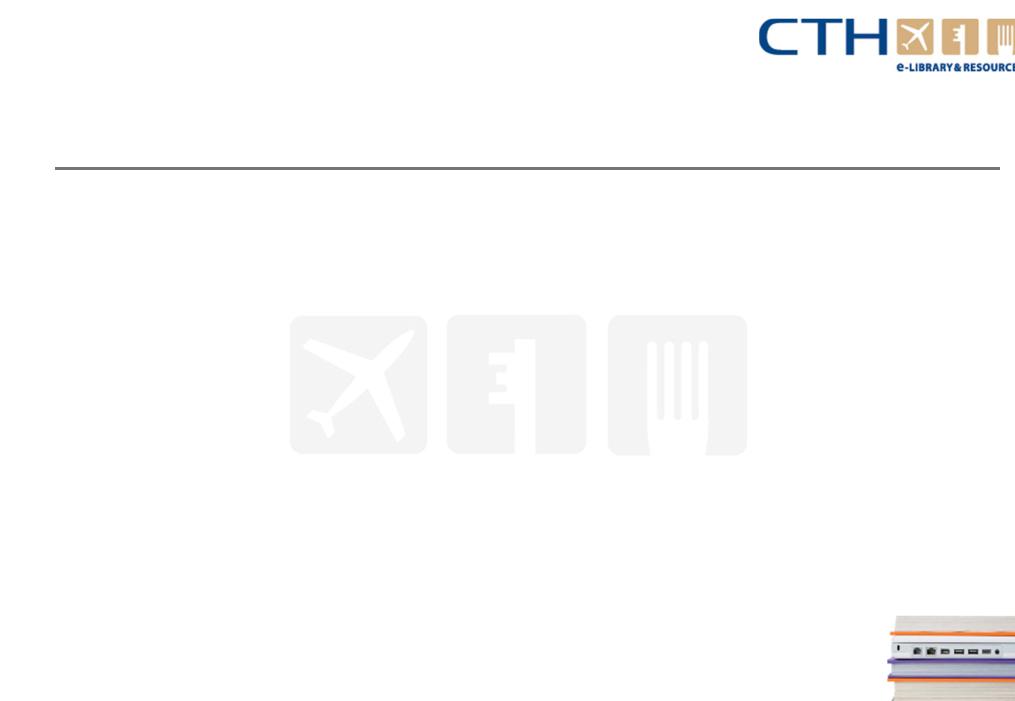
Chapter 9 – Interpersonal and selling skills
Selling skills and techniques
4.7 Repeat business
The ideal opportunity for boosting repeat business is on check-out. A receptionist may ask: 'Have you enjoyed your stay with us?' If the answer is yes, (s)he could go on: 'Might you be returning this way some time in the future?' If guests are intending to return, or state that they regularly travel to or through the location, the receptionist can offer to make a provisional reservation for them. If guests aren't prepared to do this (perhaps being uncertain of dates), the receptionist can furnish them with a brochure and business card, and assure them that they can easily make a reservation at any time: paving the way for a repeat sale by making it clear that the returning guest will be made welcome.
Alternatively, the receptionist may be able to offer the guest the opportunity to join the hotel's loyalty scheme or 'membership club'. Such a scheme may simply enable the hotel to keep in touch with the guest, by sending printed or e-mail newsletters, special offers and invitations to particular events). It may also create ,“incentives for return visits: select offers for other hotels in the chain; discounts on future stays, or meals in the hotel restaurant; member privileges (e.g. pre-arrival room allocation)
www.cthresources.com |
Page 524 |
|
www.cthawards.com |

Chapter 9 – Interpersonal and selling skills
Selling skills and techniques
4.8 Referred sales
Sales may be referred or directed to the hotel, by:
●Travel agents, hotel booking agents and tourist information bureaux, such referrals are usually reward by the payment of commission on the sale.
●The central reservation office or central booking office of a hotel group
●Satisfied guests, who recommend the hotel to friends, relatives or business associates. In such a case, of course, commission would not be paid for the referral - but the referral should be noted on the guest history card, and some acknowledgement may be made on the guests next visit
www.cthresources.com |
Page 525 |
|
www.cthawards.com |

Chapter 9 – Interpersonal and selling skills
Handling guest problems, feedback and complaints
5.Handling guest problems, feedback and complaints
5.1Problems that may inconvenience guests
5.2Handling guest complaints
5.3Interpersonal skills for handling complaints
5.4Gathering and using guest feedback
www.cthresources.com |
Page 526 |
|
www.cthawards.com |

Chapter 9 – Interpersonal and selling skills
Handling guest problems, feedback and complaints
There will inevitably be some guests who have unrealistic expectations; demand the impossible; feel the need to 'throw their weight around‘ (perhaps because they are stressed or insecure in unfamiliar surroundings and circumstances, or frustrated at not being able to speak the language); are aggressive and rude in making demands or complaints; or perhaps just enjoy fault-finding and complaining. It's a hazard of the job.
Nevertheless, the most unpleasant guest may have a genuine problem, there may be a kemel of truth to an exaggerated complaint - something the hotel can put right or learn from. And just because a guest is aggressive or rude, it does not give hotel staff licence to be the same! Though this is not easy, it is crucial to maintaining a pleasant atmosphere and guest satisfaction.
www.cthresources.com |
Page 527 |
|
www.cthawards.com |
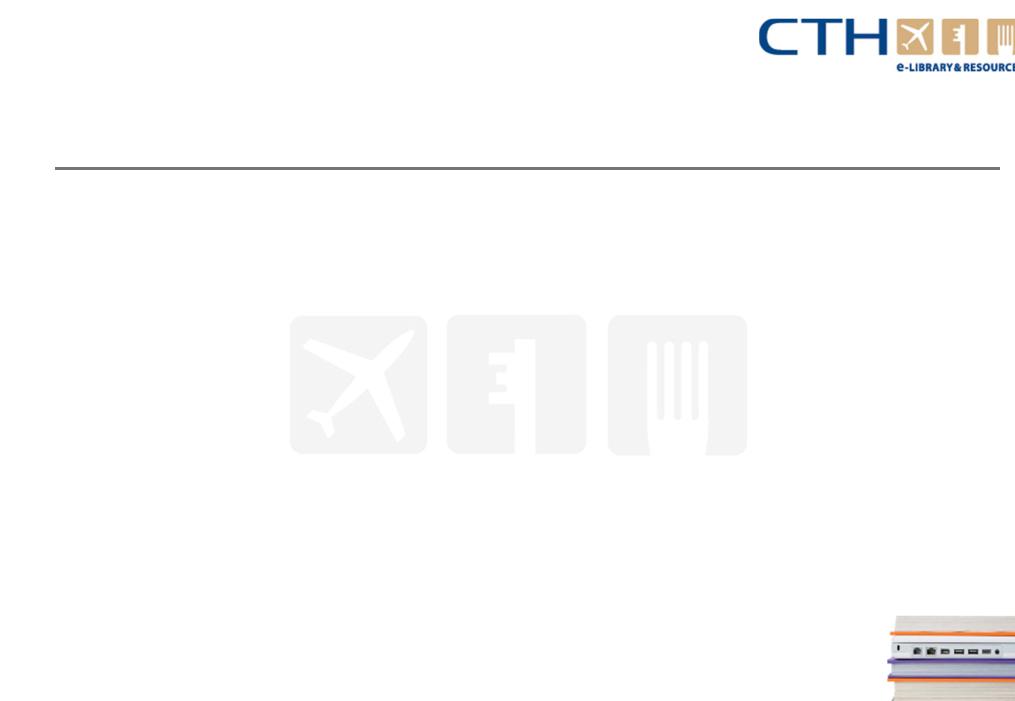
Chapter 9 – Interpersonal and selling skills
Handling guest problems, feedback and complaints
5.1 Problems that may inconvenience guests
Problems will be created by the hotel, or directly within the control of the hotel - and some won't. Front Office staff may have to handle a complaint and do their best to assist the guest. Example:
|
Cause of problem |
Examples |
|
Guests' lack of |
A guest arrives before check-out time: no room is available until midday |
|
familiarity with hotel |
A guest arrives after 6 pm release time: the room has been re-Iet |
|
policy or terminology |
A guest has booked a double room, but expects two single beds |
|
|
|
|
Fully booked hotel |
A guest refuses to believe that no room is available |
|
Lack of service from |
A guest is ignored on arrival at front desk |
|
front desk staff |
A guest telephoning front desk is kept on hold for a long time |
|
Errors made by the |
A guest books a twin room and is given a double |
|
hotel |
A guest is overcharged |
|
|
A guest receives slow (or discourteous) service |
|
|
A guest does not receive a requested early morning call |
|
External factors |
A guest's luggage has been lost by an airline |
|
(outside the hotel's |
A guest has mislaid their safe deposit key |
|
control) |
A guest has misplaced prescription medication |
www.cthresources.com |
Page 528 |
|
|
|
www.cthawards.com |
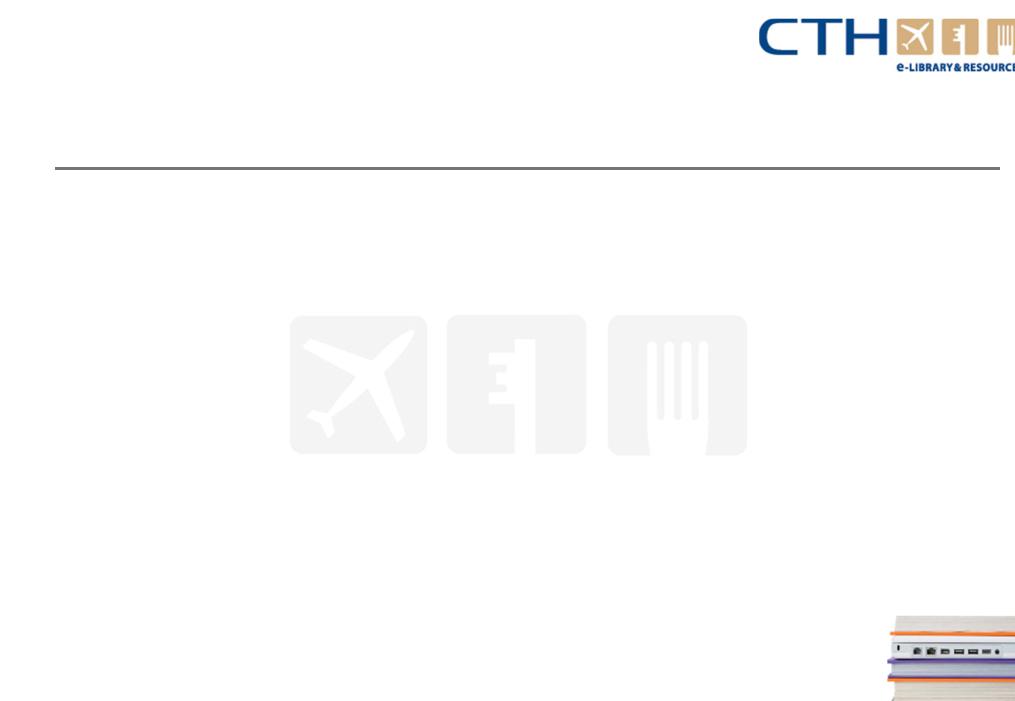
Chapter 9 – Interpersonal and selling skills
Handling guest problems, feedback and complaints
Key causes of problems resulting in a complaint include:
●Something 'wrong' with the room. This may be a matter of the expectations or perception s of the guest: (s)he doesn't like the view, or the decor, or the room is smaller than expected. However, there may also be genuine faults; the room hasn't been adequately cleaned; the air conditioning or heating doesn't work properly; the window doesn't open; the television doesn't work; the room is noisy because it overlooks the bar etc
●Disruptive behaviour by other guests. Many hotels post notices, or statements in their in-room information packs, requesting guests to respect the comfort of other guests, by reducing noise to acceptable levels after 11.00 pm at night. However, not all guests will notice or heed these requests, and their neighbours may be unable to enjoy the peace, relaxation and sleep they are entitled to
If a guest complains, Front Office staff will need to acknowledge the fact and try to put the matter right.
www.cthresources.com |
Page 529 |
|
www.cthawards.com |

Chapter 9 – Interpersonal and selling skills
Handling guest problems, feedback and complaints
5.2 Handling guest complaints
Reception will often be the first port of call for guest complaints.
The first point to remember is that the hotel wants and welcomes guest feedback - including negative feedback - as a tool for improving service and satisfaction in future. It needs to encourage complaints, by making it clear to guests that they can come to reception with any needs or problems they may have - and by handling each complaint positively, calmly and constructively (whether or not the customer is 'right').
Minor complaints can often be dealt with by the front desk.
●If there has been an error in the posting of charges, (e.g. the receptionist can show prompt willingness to investigate; acknowledge any error which is confirmed (while stating that it doesn't happen often); apologise for the inconvenience; and correct the room account)
●If something is wrong with the room, the receptionist can either have the guest moved to a new room (where required and available), or ensure that housekeeping or maintenance are alerted to fix the problem. (The room may lack soap or towels, say, or an appliance may need replacing. )
www.cthresources.com |
Page 530 |
|
www.cthawards.com |
